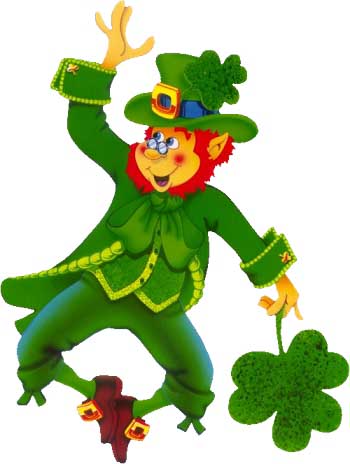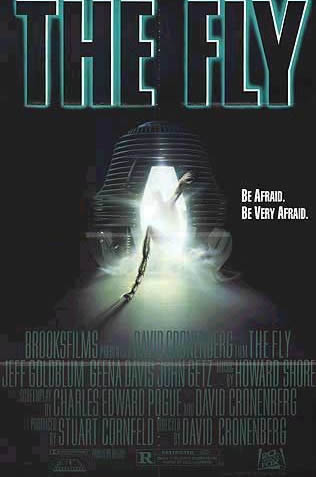Blog Archive for 3/14/04 - 3/20/04
Remembrance: The Real St. Patrick
Posted in anticipation of 12:01 a.m. on St. Patrick's Day, Wednesday, March 17, 2004
In my youth, St. Patrick's Day was most of all a day to wear green. Be caught without green and you got pinched all day. St. Patrick seemed to be the patron saint of pinching, for all I knew. And he looked suspiciously like a leprechaun. |
 |
 |
On March 17, 1982 I found myself in New Haven, Connecticut. (Yes, a Harvard man in Yale territory, I confess.) Little did I know that I had wandered into one of the oldest and most enthusiastic celebrations of St. Patrick's Day in America. All the downtown pubs sold green beer (!) for a dime. Crowds gathered for the annual parade. I was caught up in a tidal wave of humanity who were "painting the town green," if you will. |  |
At that time I had some vague idea of St. Patrick's Christian exploits in Ireland, but it was hard to find the connection between the mass consumption of green beer and the early evangelization of Ireland. Later I did a bit of research to find out something about the real St. Patrick.
His story reads like an Indiana Jones-type adventure. Raised in Britain (yes, not Ireland), Patrick was captured by pirates in A.D. 405 when he was only sixteen years old. The kidnappers whisked him away to Ireland and sold Patrick into slavery. He spent eight years as a captive in this pagan land.
During his captivity, Patrick embraced the Christian faith of his upbringing, something that had mattered little before. In his own words, Patrick explains: "And there the Lord opened the sense of my unbelief that I might at last remember my sins and be converted with all my heart to the Lord my God, who had regard for my abjection, and mercy on my youth and ignorance, and watched over me before I knew Him, and before I was able to distinguish between good and evil, and guarded me, and comforted me as would a father his son" (from The Confession of St. Patrick).
 |
Inspired by a dream, Patrick finally escaped from Ireland and made his way back to his home in Britain. But, in time, he sensed God's call to return to Ireland, of all places, in order to share the good news of Christ with the pagans there. Even though he feared he wasn't sufficiently learned to be a missionary, Patrick returned to Ireland, where he found unprecedented success in his evangelistic endeavors. His experience of Irish language and culture during his years as a slave enabled Patrick to communicate the Christian gospel with unique effectiveness. |
Though we can't be sure when Patrick died, tradition holds that he lived into his seventies and died on March 17 in the latter half of the fifth-century A.D. In twenty five or thirty years of evangelistic work he led thousands of Irish pagans to Christ, and was responsible for Ireland's becoming one of the most Christian nations in Europe. For this reason he is called "the apostle of the Irish."
The story of Patrick reminds me, in a way, of Joseph's experience in Egypt? What pirates and slave masters intended for evil, God intended for good (Gen 50:20). Today I want to celebrate, not only Patrick's example of faithfulness, but also the mystery and majesty of God's sovereignty.
It is appropriate to close this piece with an excerpt from a prayer that is attributed to Patrick. Whether he actually wrote it or not, this prayer captures the boldness of his Christian faith:
| Christ with me, Christ before me, Christ behind me, Christ within me, Christ beneath me, Christ above me, Christ at my right, Christ at my left, . . . Christ in the heart of everyone who thinks of me, Christ in the mouth of everyone who speaks to me, Christ in every eye that sees me, Christ in every ear that hears me. I bind to myself today The strong virtue of an invocation of the Trinity, I believe the Trinity in the Unity The Creator of the Universe. |
 |
|
According to legend, St. Patrick used the shamrock as an illustration of the Trinity. |
Reflection: The Fly, Spider-Man, and Gay Marriage
Posted at 9:00 p.m. on Sunday, March 14, 2004
I want to interrupt my series "What Was the Message of Jesus?" to put up some thoughts on the gay marriage question. I hope to add some clarity to a debate that's often obscured by murky outbursts from both sides.
Those who advocate gay marriage generally advance the "it's no big deal" argument. "Hundreds of couples have been 'married' in San Francisco during the past few weeks," they argue, "and nothing bad has happened. Society hasn't fallen apart. California hasn't fallen into the ocean. Some gay couples have pledged their love and commitment to each other. That's all. No harm, no foul. So why are the opponents of gay marriage so upset? What's the big deal?"
Opponents of gay marriage have been quick to argue that it is a big deal, that what's happened in San Francisco (and elsewhere) chips away at one of the basic building blocks of civil society. "The implications for our nation are dire," they allege. "By redefining marriage you're messing with things far bigger than they might first appear. If this continues, the harm will be momentous, including the dissolution of the family, the improper raising of children, and the fundamental disordering of our society." (Jim Berkley has an articulate summary of this position.)
One problem with this conservative argument is that it is theoretical and philosophical, not visual or visceral. Thus it doesn't have much bite in a society dominated by images and feelings. We can watch on TV as gay couples pledge their lives to each other, crying for joy and sharing their celebrations with friends and family. But there aren't any counter-balancing scenes of society being injured by gay marriage. We don't see images of maladjusted children on the CBS Evening News, only the angry faces of anti-gay activists complaining about those who have just celebrated love and commitment. When it comes to the all-important image game, gay marriage is winning hands-down.
How in the world can conservatives persuade people of the potential dangers of gay marriage? What images could conservatives display that would illustrate the negative results if our society were to endorse marriage between people of the same gender? Perhaps they should show excerpts from the 1986 horror thriller The Fly.
| Now before you dismiss this thought as bizarre or accuse me of saying that gay people are monsters (I am not!), let me explain. In David Cronenberg's remake of the 1958 classic film, Seth Brundle (played by Jeff Goldblum) is a brilliant scientist who has invented a machine that teleports a person electronically from one place in space to another. When he tests this machine on himself, a fly joins Brundle in one of the telepods. As he is transported, his DNA is joined to that of the fly. The basic building blocks of Brundle's existence - his genes - have been forever altered. |
 |
 |
"What in the world does this have to do with gay marriage?" you must be wondering. Well, I'll get to that in a minute. But first I need to introduce another bug-joins-man movie. In the 2002 blockbuster, Spider-Man, high school student Peter Parker is on a field trip to a scientific lab when he is bitten by a genetically-enhanced spider. As a result, his genes are altered, and, rather like Seth Brundle in The Fly, Peter Parker becomes a being whose genes are a human and insect combination. |
In both movies the immediate results of the genetic changes in the protagonists are positive. Both have new strength and vigor. Both are thrilled by their new lives. But soon their experiences diverge. Whereas Peter Parker (aka Spider-Man) becomes a superhero, Seth Brundle (aka Brundle-Fly) becomes a hideous monster. The same basic cause (genetic change from insect interaction) turns out to have radically opposed effects.
So here's my point. Marriage is one of the fundamental building blocks of our society, an essential part of our social DNA, if you will. Altering this social gene will change our society forever. Either it will be much better, a superhero society of new human freedom and dignity, or it will be much worse, an impoverished society of human brokenness and confusion. There isn't middle ground. One who argues that redefining marriage is no big deal completely underestimates the extent to which marriage is essential to our social DNA, for better or for worse.
Advocates of gay marriage try to use the "it's no big deal" argument because that's the course of least resistance. But it's naïve, if not disingenuous, to minimize the social change they are demanding. Changing the definition of marriage will make a huge difference in our society. If I were an advocate of gay marriage, I would argue that we need to make such a difference, that the new social order, which redefines marriage to make gender irrelevant, will be better than the current social order. But I could not and would not ever argue that it really doesn't matter all that much.
| What about the "happy gay couples with no harm to society" argument? One main problem with this argument is that it's simply way too early to tell if changing social DNA will lead to Spider-Man or The Fly. Remember, both Peter Parker and Seth Brundle at first experienced ecstasy in their genetically-reordered states. Life seemed to be better for both of them. But, in time, the negative consequences of Brundle's DNA switch began to appear, at first minimally, and then horribly. Gay marriage advocates claim that the DNA transformation in our society is a good one, and they point to the gay images from San Francisco. But the fact is that these folks have no idea what will be the long term effects of this societal DNA change. Although things might look good on the surface, we may very well be in the "early Brundle-Fly" stage of euphoria. So, without transcendent moral guidance in the matter of gay marriage, nobody can know that the long-term result of this social change will be positive. Scenes of rejoicing gay couples in San Francisco could be as misleading as images of Seth Brundle enjoying his newfound vigor as Brundle-Fly. |  |
 |
Those of us who believe that we do in fact have transcendent guidance for life don't have to engage in perilous social experimentation to know what's best for human society. The Bible has made it clear from the beginning that marriage should be between one man and one woman. We have no reason to believe that God's mind has changed in the matter. It would be truly sad if our society had to discover by experience the implications of rejecting God's design for our social DNA.
I'm grateful that so many of you have made reading my blog a regular habit. My plan is to continue to put up stand-alone blog posts, as well as series of posts when I'm addressing topics that cannot be covered in one post. If you would like me to notify you when I start a new series and/or when I finish one, you can enroll in my "Series Update List." Be assured that I will not give or sell your e-mail address to anyone, ever. I will not use it myself other than to notify you when I begin or complete a blog series. You can remove your name from the list at any time. To sign up, click here and type "sign up" in the subject line. |

